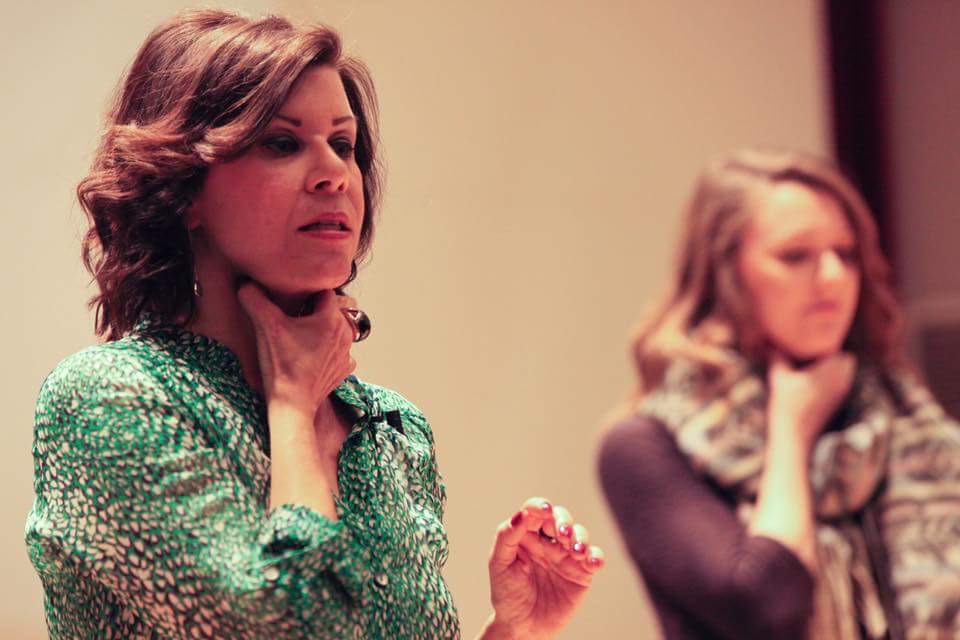Since 2001, Dr. Ragan has been privileged to work in affiliation with remarkable voice teams throughout the Seattle area and beyond. In particular, her primary voice team has been University of Washington Division of Laryngology Perform Voice Clinic in the Department of Otolaryngology headed by Dr. Al Merati. She also works with the University of Washington Voice Section of the Speech & Hearing Sciences Department, and Bellevue Ear, Nose & Throat Clinic with Dr. Craig Villari among laryngologists.
The work of a Singing Voice Specialist (SVS) requires a great deal of training to understand the anatomy and physiology of the five-systems of the voice (respiration, phonation, registration, articulation, and resonation) as well as training in voice disorders and rehabilitation. An SVS must have knowledge of how these systems work both independently and interdependently to produce sound, and how the injury or pathology impacts vocal function. The specialized training enables the SVS to collaborate with the voice team in order to develop a rehabilitative plan for the needs of each singer.
Singing Voice Specialty is still somewhat in its infancy even though many have been doing this important work in collaboration with a voice medical team for years. Discussions can be chronicled to as early as 1984 when Dr. Robert Sataloff outlined the idea of developing a program for the Care of The Professional Voice. Arts Medicine, as a field, was established in 1987. In 1991, at the Voice Foundation Symposium, a further discussion ensued (led by Dr. Sataloff and Dr. Ingo Titze, among others) concerning standards of care for the singing voice professional. The ‘voice team approach’ evolved from there.

